About the series
The "Auburn voices from the pandemic" series is an oral history from The Plainsman of COVID-19 and how people are being affected by the disease.
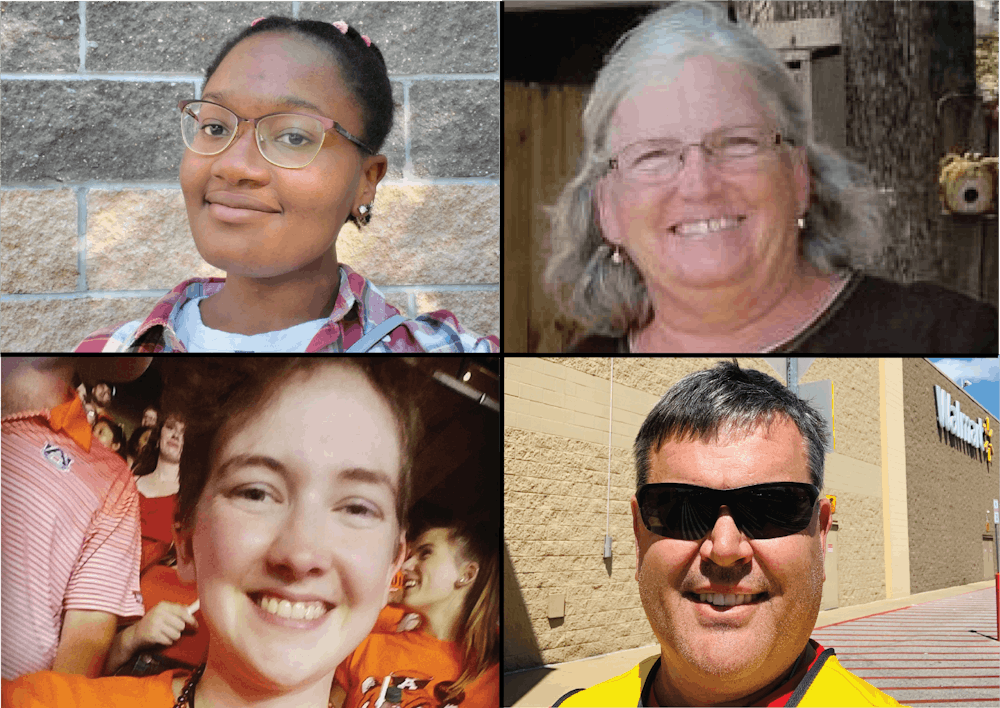
As told to Evan Mealins
While essential businesses like grocery stores remain open during the pandemic, some workers who interact with customers are concerned for their health and the health of others. The impact and stress from the pandemic and personal circumstances is different for each of them.
The transcripts from each of their interviews with The Plainsman have been slightly edited for clarity and rearranged for structure to produce the following piece.
Najae Ware, 22, works at Kroger as a cashier. She’s worked there for a little over two years.
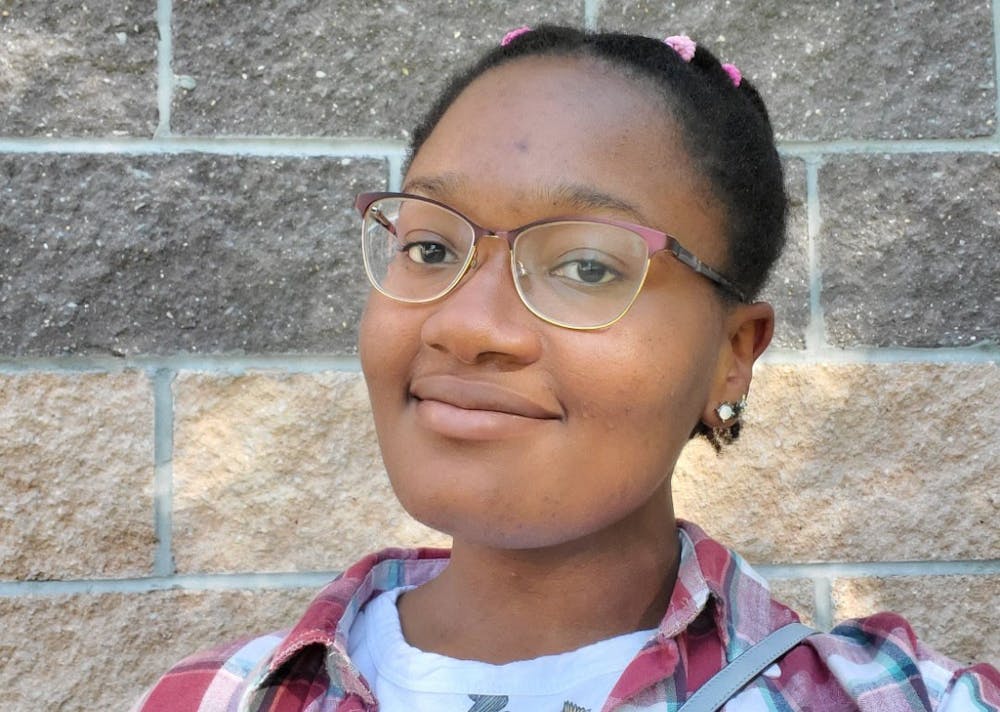
Nothing’s really changed. That’s kind of the problem.
Everywhere else, the CDC wants you to wear masks and protect yourself, but within the stores, nothing’s really changed. I feel like when you walk in the door, the rules don’t apply anymore.
And it’s really concerning, you know. It puts our health at risk, because anyone could come in the store with whatever type of sickness and infect a bunch of people.
We’re getting hazard pay now, but at some level, I feel like we deserve more — we’re just common people, not doctors. We’re not properly equipped to handle the public. We don’t have restrictions on customers. The state says no more than 10 people in a group, but we see hundreds of people in the store each day.
Management has taken some steps, and putting up a piece of plexiglass between the register does put someone at a little bit of distance, but it’s an airborne virus, so I’m not sure how much it helps. Ideally, we could close the store for about a week to sanitize everything and give everyone a little bit of a break, but we can’t because we’re an essential store.
Most customers are kind. A lot of the time, the kind customers apologize for us having to be here, not having a choice, like if a person were working on a holiday. And that’s kind, but I don't know what else I’d be doing.
The other customers, it’s like half of them are confused and more angry and aggressive than normal because they’re scared, and it comes off as very rude to someone who’s just trying to make it through their workday.
I work basically full time now, but I’m still technically part-time. I work five days a week, and taking a day off isn’t really an option right now. You either have a day with no pay, or you’re looking at something to probably go on your record. That’s not something I could take right now.
It’d be hard to find another job if I needed to. Right now, I’m working to save money to go to college, so money is important. I used to work at a bowling alley, but I started this job because it had better hours and I could walk here, which is important since I don’t have a car — it’s a 30-minute walk, but I can still walk. There are not many other places that pay as well as my current job and are within walking distance.
Every workday, when my walk to work ends and I’m walking through the doors, I’m just thinking, “I hope I don’t get sick today.”
It’s just a crappy situation, and I think for everybody here, we’re all just trying our best.
Shawna Messer, 62, has worked as a deli clerk at Kroger for 10 years.
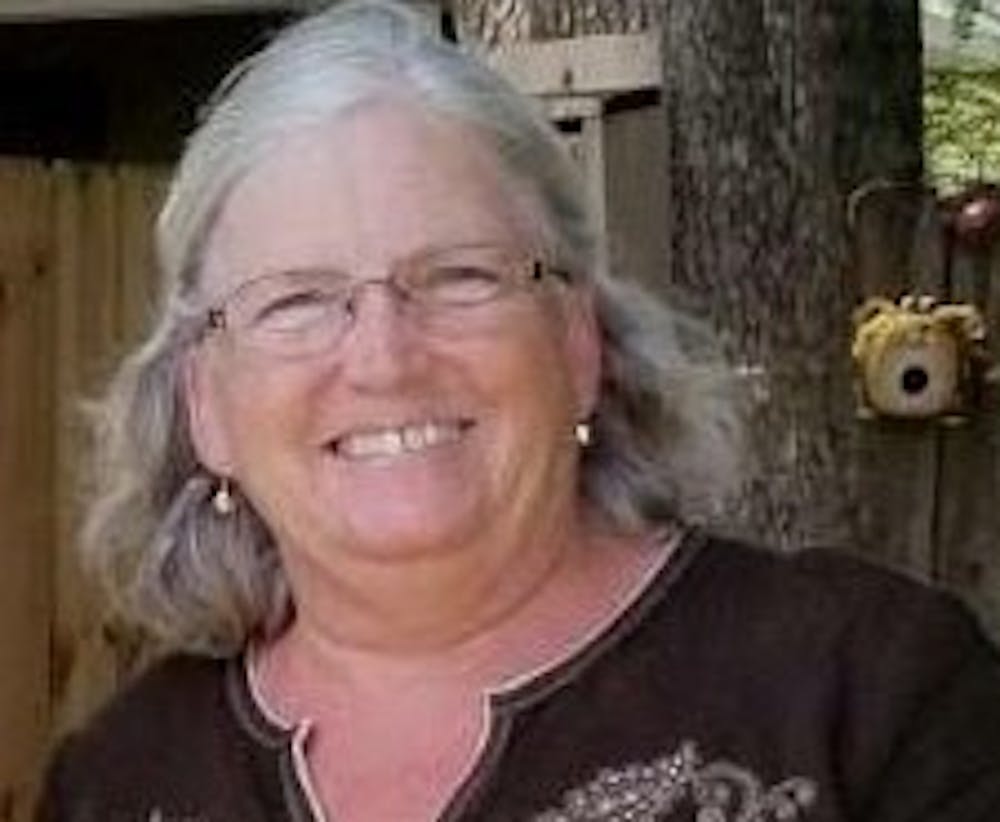
I’m still a little leery about having to go in and having to deal with everything, but people need a grocery store. We need something open, you know? You’ve got to eat.
I never considered leaving the job once the virus became a pandemic. It’s not just that I need my job, but it’s part of taking pride in what I do. I get nervous sometimes. In fact, I get nervous every time I go to work, and I sometimes feel like I don’t want to go. But I still do it.
Working now, I’m very cautious. I use gloves, wash my hands a lot and sanitize them. I bring a Clorox wipe with me and wipe down buggies, and I disinfect the time clock when I clock in or out. I’m worried about what I’m touching, realizing how much I touch. Most people will scratch their face and everything like that, so I have to be more cautious about that.
Whether or not it’s entirely effective, I sure hope so. I mean that’s all I can do, you know? I think mostly the steps I’m taking are. We ain’t really got a guarantee, but I believe that they help.
The hazard pay helps with this situation a little bit, too. If something were to happen, it wouldn't be worth it, but like I said, I’m not one to just not go to work because all this is going on. It’s not in me.
Most shifts I’m working now are night shifts. The managers give you the choice whether you want to wear a mask or not. I don’t wear a mask all shift, but when the customers start coming in, I do put my mask on. I heard that a customer got angry at a girl cutting the meat in the deli for not wearing a mask and said, “If we gotta wear 'em, y’all gotta wear 'em.” And I understand his view, but it’s not easy to wear these things. You know, you can’t breathe through them, and I wear glasses, so when I put mine on my glasses fog up. I just take them off because I can’t see.
I get off around 7 a.m. Once I leave work, I hop in my car and sanitize the parts I touch. I get home, and I spray all my clothes off with my Lysol before I get in. I don’t really strip them down like everybody says. I can’t wash every day. I just can't do it.
For the time being, I’ve had to shut down my cleaning business that I run for extra income. I haven’t been cleaning any houses right now because I’m working in a grocery store, and it’s a health risk, but I’ll reopen after this is all over.
I just try not to dwell on everything too much. I don’t wanna freak out and just worry myself to death about it. We’re doing the best we can do, and it’s out of our control.
Emily Clark, 22, is a senior at Auburn University studying anthropology. She’s worked part-time in the dairy department at Kroger for a little over a year.
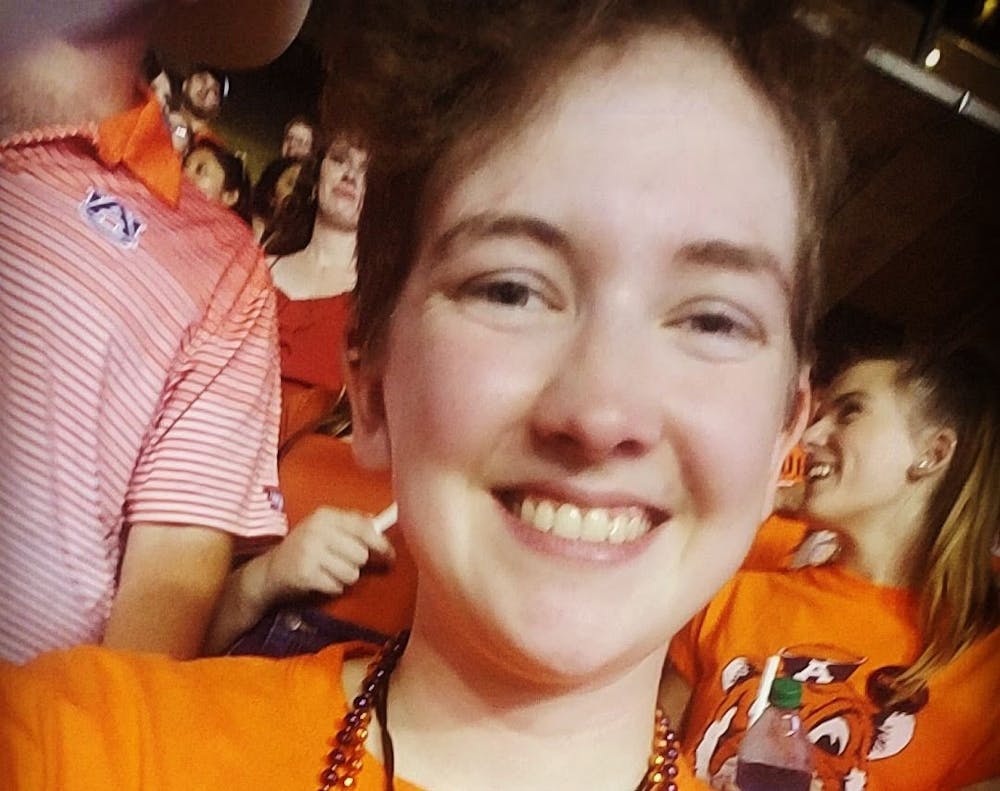
I had the option to leave this job and go back home.
I'm in a fortunate place where my parents would rather see me home and safe than out working, but personally I've decided to keep working mostly because I don't want to lose this job opportunity, especially as a graduating senior going into a pretty bad job market. While the jobs I’m looking for are mostly government positions or positions in a museum — jobs that are still going to exist even if we have a potential recession — it'll be more competitive.
The original plan was to stay in Auburn until August when my lease is up and then move back home with my parents in Atlanta, and in the meantime, be looking for a job that I could move into. But since my job at Kroger is transferable, and I've also now had the managers offer to keep me on for longer here, I didn’t want to give that up right now. So, it's nice to have the stability, but I also would much rather not be doing this.
I try to mostly keep my distance at work. If we suddenly have a spike of customers, I tend to stay in the back, and since I work in dairy, I can work in the cooler and put milk up on the shelves instead of being out in the middle of the crowd. I definitely go into work with an avoidance mindset.
This helps me avoid both getting sick and having to deal with any angry customers. I just try to remember that there's gonna be people that will frustrate me, because people will normally jump down your throat, but especially now when everyone’s so stressed out.
I’ve started wearing a mask to work just to hopefully provide a visual for people, because customers still feel the need to get very close to us to ask us questions.
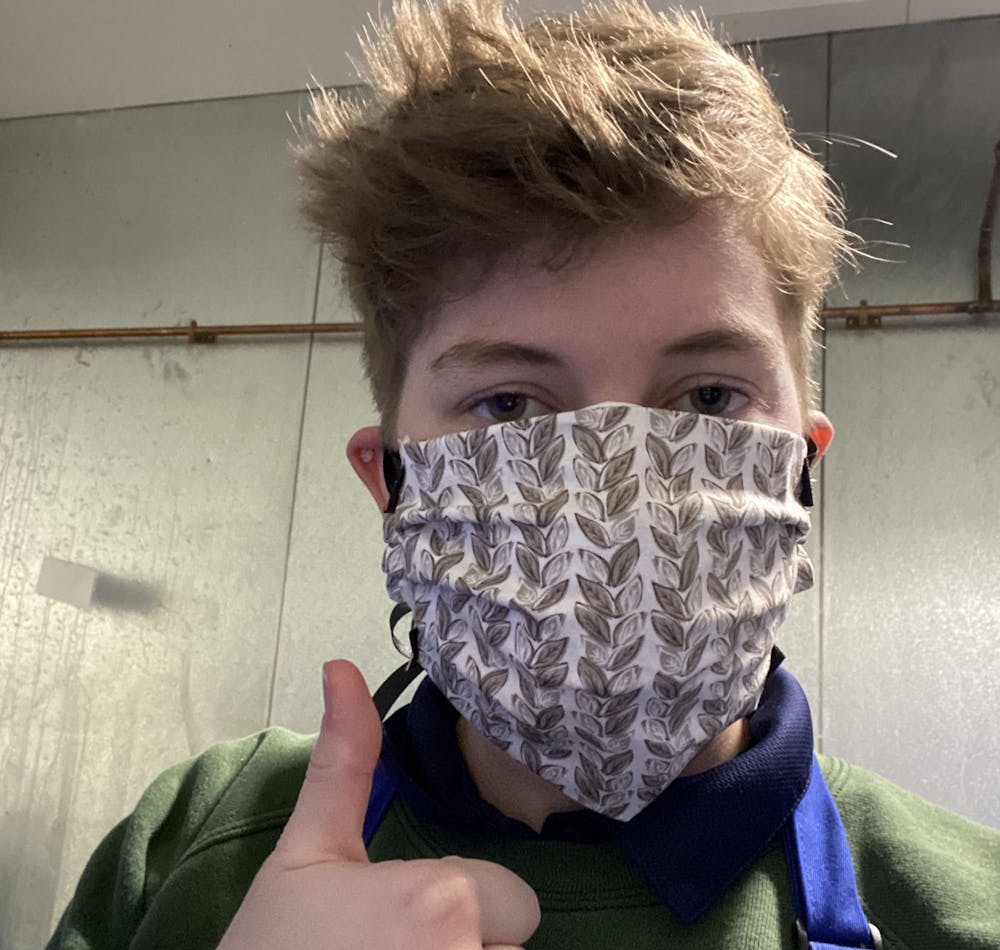
The biggest thing I think customers need to do is be conscious of how much you're touching. Even now I try to do it. If I have to go into a store to do my shopping, I keep my hands in my pockets, and I just look with my eyes and not with my hands as much as I can.
Employees are taking things in different ways, too. It’s a mixture of people who just make the jokes about, “Well if I get it, I get it,” and so on, but there are people that are quite tense about it because there are managers and workers that have family members that are immunocompromised, so when people don’t take it seriously, they get upset.
They've given us a one-time bonus along with $2-per-hour hazard pay which, you know, it's nice to have, it's appreciated, but if I was in a position where I didn’t have the support of my family, that would not be anywhere near enough to support me if I had to go into the hospital.
The stress is making online classes difficult. I think even without a job, I'm someone who doesn’t do this online class thing very well, and then add that to the stress of being someone who is still going to work — it's difficult, but I think I'm getting through it.
Jeff Dean, 48, works in asset protection at the Opelika Walmart. He’s been there for about seven months.
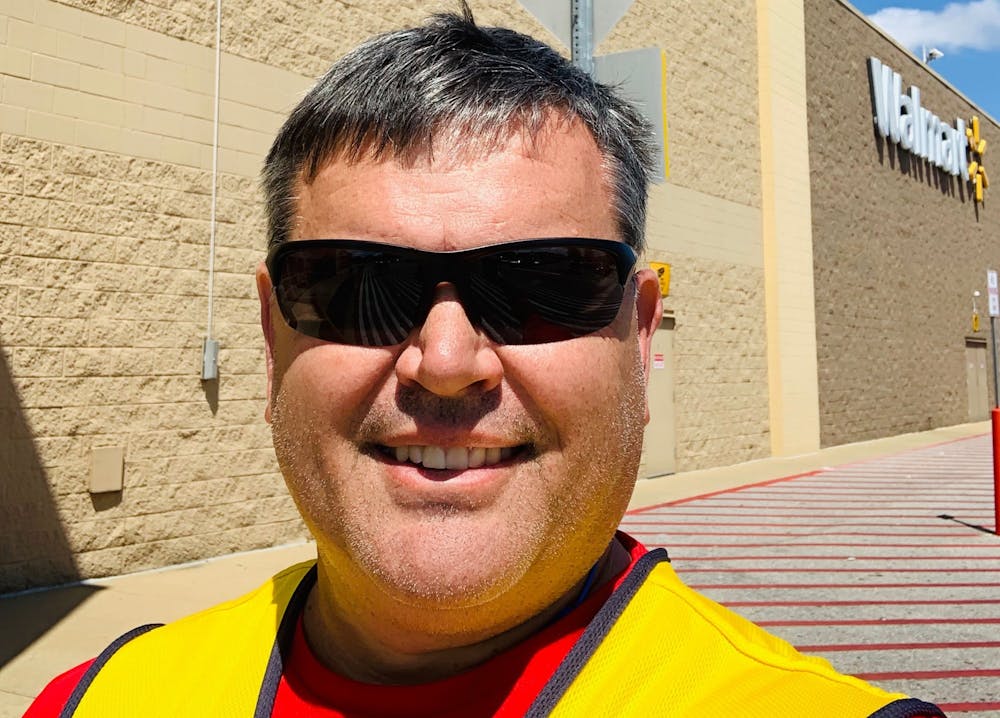
I’m working at Walmart full time right now because my other job I used to work at has been shut down for the time being. I used to work only part-time at Walmart, so I got the bonus intended for part-time workers even though I worked 46 hours last week. But it’ll be fixed by the next two-week pay period, and I’m not complaining because $150 is $150.
My story with all this begins back when I was still working as a driver for Groome Transportation. Before they shut down, I had a passenger travel with me to Atlanta that ended up testing positive for coronavirus, but they didn’t know it at the time. So I had to be tested.
My wife was back home with my stepfather and mother, and she was working as their permanent caretaker, looking after my stepfather with terminal cancer and my mother and stepfather each with a tendency to develop bronchitis.

Jeff Dean and his wife Debi Dean
I’ll tell you what, I don’t really worry about much, and I’m not really scared of a lot in this world, but man, that had me on edge for three days until I found out my test results. I was worried I was going to give it to my parents. And this was actually right before my stepfather passed away.
Him being sick with cancer, we knew his body had been weak; we knew someday this was going to happen. But he was getting weaker and weaker and bronchitis kicked in on him. And three days into it, we’re doing everything we're supposed to — breathing treatments, calling our doctors — and then he passed away. It was March 30. And as soon as he did, we asked the hospital to test him because my mom felt concerned.
He tested negative for coronavirus, but mom’s bronchitis kicked in right after he went through it. So, the past almost two weeks have been very stressful. We’ve run the gauntlet with all this. People who don’t believe it happens, well, I’ll tell ya: it happens.
I remember I asked my mom and wife, “Do y’all want me to quit work? Because they’ve given us a non-paid leave of absence here for 14 days if we feel insecure or scared that something could happen.”
They were like, “No, keep working. We’ll be fine.” So I chose to keep working.
Work’s stressful, but if I sit here and worry about everything around me, I'm not gonna make it. I'm gonna stress myself out. I’ve got too many people that depend on me to stress like that. So I laugh, and we go on in life, man. We look for the positives. We don’t look at all the negatives that some of the people out there try to get you to believe in.
Sometimes, the positive is the people coming in and out of here. We get a lot of EAMC nurses and doctors, and I get to thank them. A lot of the customers coming in and out, they’re thanking us for being here, and it’s kind of nice, even though I feel like I’m not doing anything special. I’m just doing my job. But a lot of customers thank us for being here, and it’s appreciated. We’re not a nurse or a doctor by no means, but we’re helping supply the world with food, so I guess that’s a positive thing.
Read previous stories from The Plainsman's oral history series:
- Sadok Aounallah, an RA for the village dorms, talks about living alone in Auburn and his fears about COVID-19.
- Dr. Fred Kam, medical director at the Auburn University Medical Clinic, on what a day in the office entails during the pandemic.
- Jarious Avery, freshman in biomedical sciences, is one of many first-generation college students returning home after experiencing a sliver of college life.

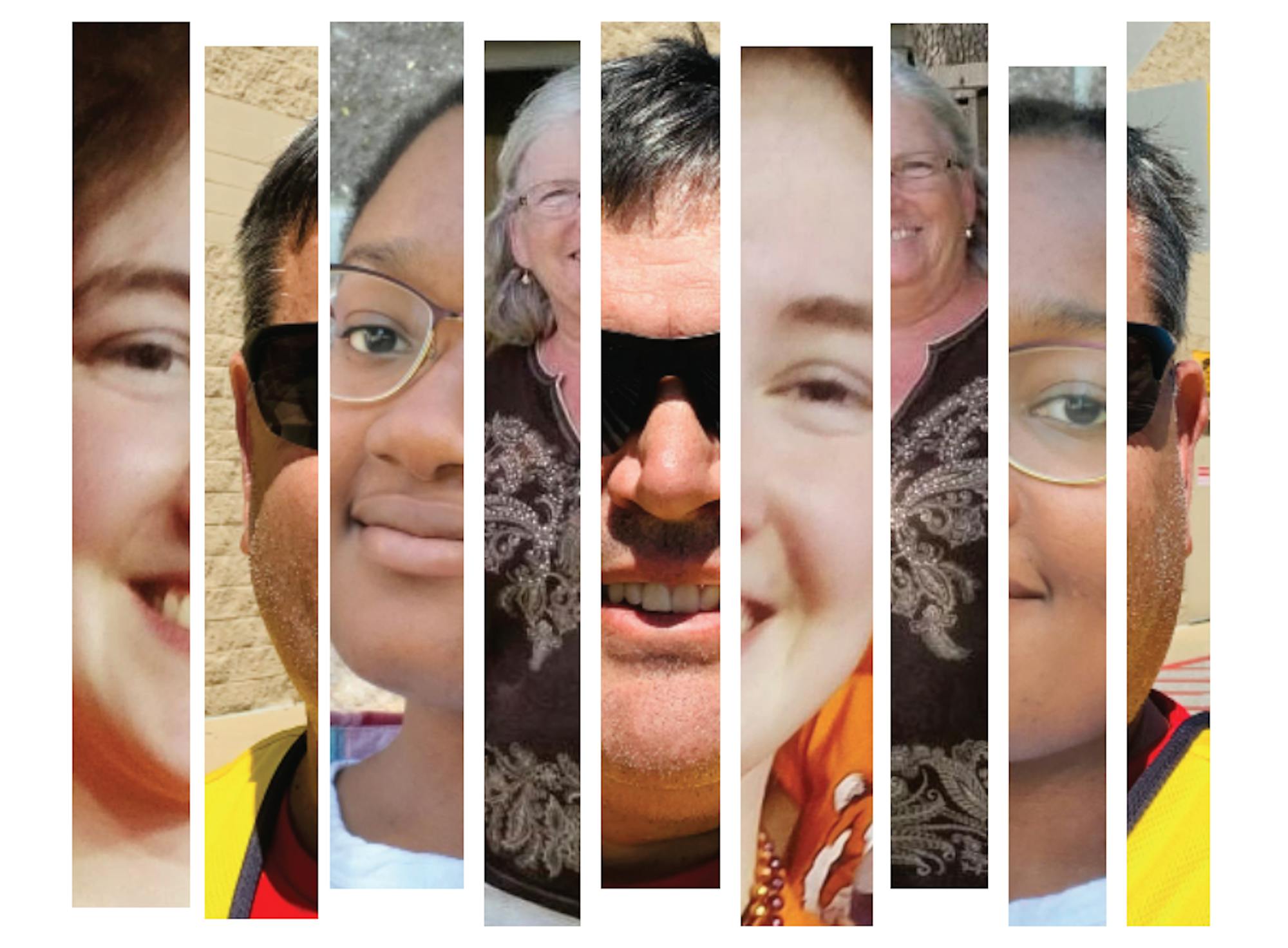



Share and discuss “Auburn voices from the pandemic: 'We’re not a nurse or a doctor by no means, but we’re helping supply the world with food.'” on social media.